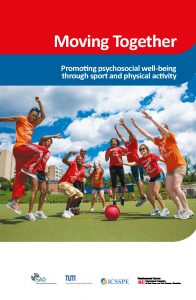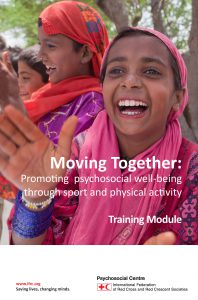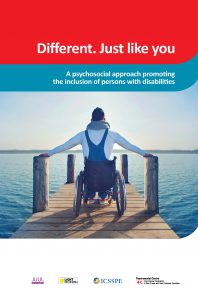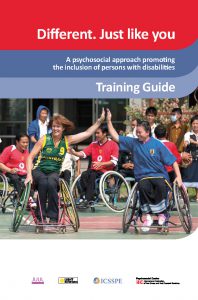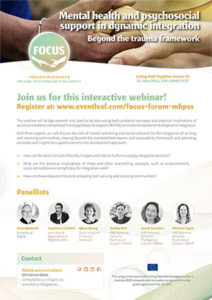20 June is World Refugee Day. More than 80 million people around the world have been forced to flee their homes, around half of whom are under the age of 18.
Providing mental health and psychosocial support for refugees is more important now than ever before. The PS Centre promotes and disseminates knowledge and information about MHPSS throughout the world through trainings, webinars and its published resources about integration and social cohesion.
The PS Centre has published a training manual and guidance, known as Moving Together: Promoting psychosocial well-being through sport and physical activity. These resources are valuable tools that highlight the power of inclusion, through the combination of sport and physical activities with psychosocial support. Evidence has not only shown that physical exercise can benefit psychosocial well-being in several ways, but it can also be a powerful tool that promotes social inclusion and creates a strong sense of community and togetherness. This is particularly important in the context of integrating refugees in a new environment and providing them with a healthy and effective outlet that ensures their mental health, well-being and ultimate integration.
The PS Centre has also published Different. Just Like You: A psychosocial approach promoting the inclusion of persons with disabilities. The training and guidance are tools to help professionals and volunteers working with persons with disabilities. This resource is based on the concept of empowerment to combat discrimination, stigmas and social barriers that often limit young adults with disabilities from accessing higher education.
To learn more about how social connections and MHPSS are fundamental elements of dynamic integration for refugees, join the FOCUS project’s upcoming webinar on Living Well Together Forum #2: Mental Health and Psychosocial Support in Dynamic Integration.
- How can the basic concept of bonds, bridges and links be built in everyday integration practice?
- What are the practical implications of these and other overarching concepts, such as empowerment, social connections or xenophobia, for integration work?
- How can these ideas contribute to activating both arriving and receiving communities?
“It is one thing that you sign a policy, to say you listen to somebody’s voice or that they have decision-making power in your projects, but how do you actually do that? How do you open the doors for them? That is really the challenge we are trying to address here.” – Anouk Boschma, Technical Advisor for the IFRC Psychosocial Centre.
If you would like to know more about the FOCUS project, listen to their first Living Well Together Online Forum podcast episode about co-creative and participatory approaches to dynamic integration.
“What’s core is to move away from the current perception of integration practice where integration is commonly seen as the sole responsibility of arriving community members. We know that this doesn’t really make sense: that actually it’s a shared responsibility. Receiving community members need to be at the table as well and they need to take a part of the responsibility.” – Michelle Engels, Technical Advisor for the IFRC Psychosocial Centre.

